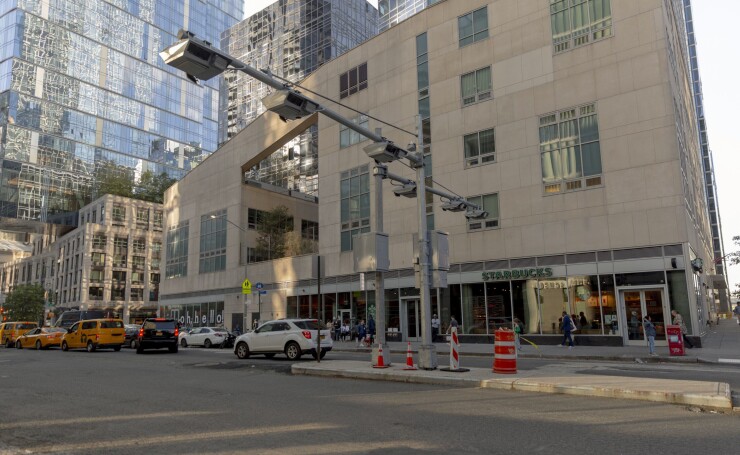Legal challenges to New York City's
The authority on Monday cautioned that repairs on elevated rail lines, upgrades on substations to keep power running and maintaining shop and yard facilities — all deemed state-of-good-repair work — face financing shortfalls absent the anticipated $15 billion that congestion pricing is set to provide.
New York City's transit officials have warned for months that major expansion projects, electric bus purchases and plans to add more elevators to its system were at risk because of legal challenges against the tolling plan, which is expected to bring in $1 billion of new revenue annually.

The plan will charge motorists a toll to drive into Manhattan's central business district, with the money helping to pay the MTA's $51.5 billion
The uncertainty surrounding congestion pricing's implementation means the MTA is planning to commit only $2.9 billion for capital projects in 2024, a steep drop from the $12 billion of work it could enter into absent the litigation risk, Jamie Torres-Springer, the MTA's head of construction and development, said Monday during a meeting of the agency's capital program committee. That means even vital improvements to keep the aging system in good working condition may need to be postponed, he said.
"While we try to avoid impacts for the most important state-of-good-repair projects — with a third of the capital program at risk — it simply isn't possible to avoid it," Torres-Springer said. Most of the MTA's capital program must be placed on hold until the legal suits are resolved, he added.
Earlier this month, the transit provider sent a letter to contractors informing them that it won't seek new contracts for infrastructure work except for emergency needs and small projects with dedicated federal funding. There were
"The impacts of these delays will be devastating," Torres-Springer said during the meeting.
The MTA has already postponed subway signal modernizations in Brooklyn and Manhattan that will decrease train delays and improve service for 1.5 million riders a day. Accessibility projects at 20 different subway stations, $1 billion of funding for new subway cars to replace trains from the 1980s, and the purchase of 270 electric buses could all be delayed. The MTA has begun the initial work to expand the Second Avenue subway line to 125th Street, but it won't be able to progress beyond that until the legal challenges are resolved.
Transit officials estimate that the MTA's capital spending plan supports 60,000 jobs, including 23,000 across the state. Minority, women- and veteran-owned businesses are also impacted as the MTA is the first among the state's agencies and departments in contracting with these companies, according to Torres-Springer. The MTA paid $833 million to such diverse businesses in 2023, he said.
Congestion pricing will charge E-ZPass motorists $15 during peak periods to drive into Manhattan's central business district, which runs from 60th Street to the southern tip of the island. New Jersey Governor Phil Murphy, who oversees





